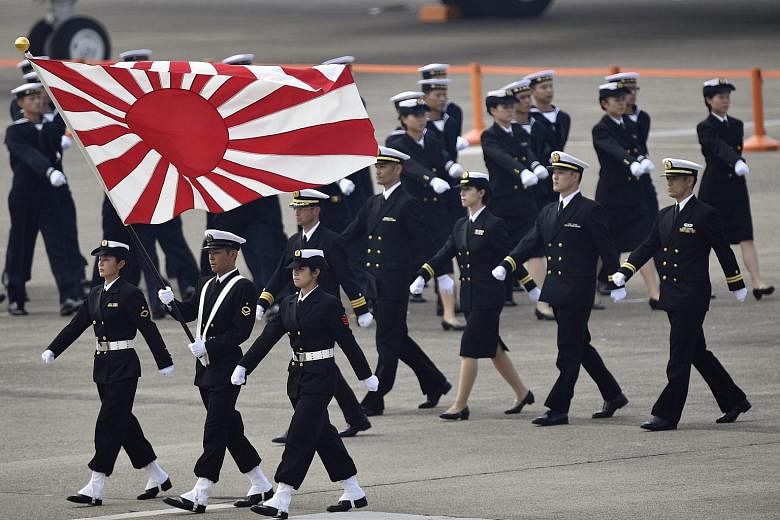Seventy years after the end of World War II, Japan came closer to allowing its troops to fight overseas again when its Lower House of Parliament yesterday passed two Bills changing the nation's security laws.
The controversial legislation - opposition lawmakers walked out of the Diet and thousands of protesters chanted in the streets of Tokyo in a rare public display of disaffection - marks the coming of a major shift in Japan's security doctrine. It will be closely watched across Asia, where memories of its wartime aggression have not entirely healed.
China, which is planning major celebrations to mark the end of World War II, reacted swiftly to the development, describing the legislation as an "unprecedented move".
"It is fully justified to ask if Japan is going to give up its exclusively defence-oriented policy," said Foreign Ministry spokesman Hua Chunying, adding that Tokyo should avoid "crippling regional peace and security".
The Bills now move to the Upper House of Japan's Parliament. If they are not passed within 60 days, they will return to the Diet where Prime Minister Shinzo Abe has a two-thirds majority that could help him overrule a negative vote in the upper chamber.
Mr Abe's move to amend the United States-imposed Constitution underscores the changing security dynamics in the Indo-Pacific region, where China's rise and assertive attitude have spread worry.
Washington itself is encouraging its allies to take on more military responsibilities, even as it proceeds with its own military rebalance towards Asia. Japan, which has its own maritime dispute with China, recently concluded a joint exercise with the Philippine navy in a non-contested part of the South China Sea.
Tokyo is also wary of the nuclear and ballistic missile tests that North Korea has conducted in recent years. China has also conducted a series of military exercises near Japan.
Even so, the majority of Japanese do not wish to see changes to their pacifist Constitution.
However, Mr Abe has stood against public opinion at home to push the changes, which will allow Japan's military to fight in support of an ally, even if there is no direct threat to Japan. Current Japanese laws do not permit Tokyo to use force to resolve conflicts, except in self-defence.
"The security situation surrounding Japan is increasingly severe," Mr Abe, whose public support ratings have dropped to about 40 per cent, told reporters after the vote. "These Bills are necessary to protect Japanese lives and prevent a war."
SEE TOP OF THE NEWS AND ASIA


